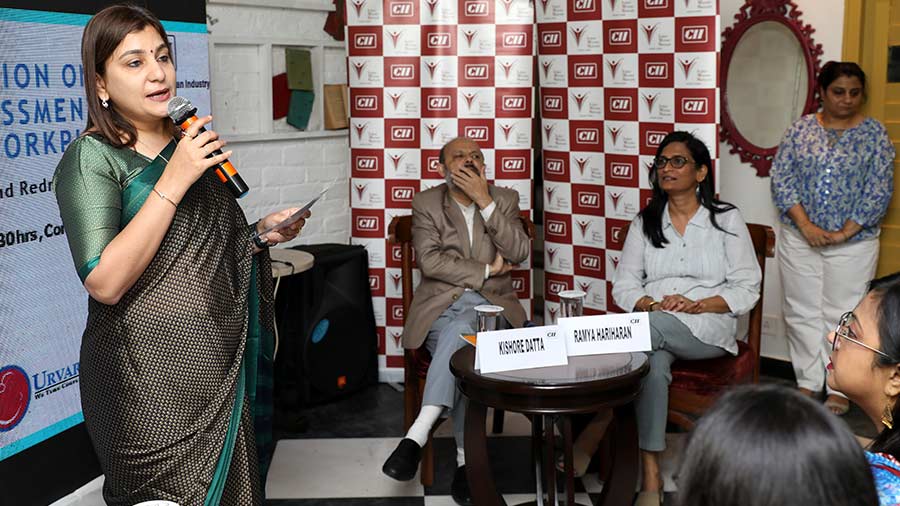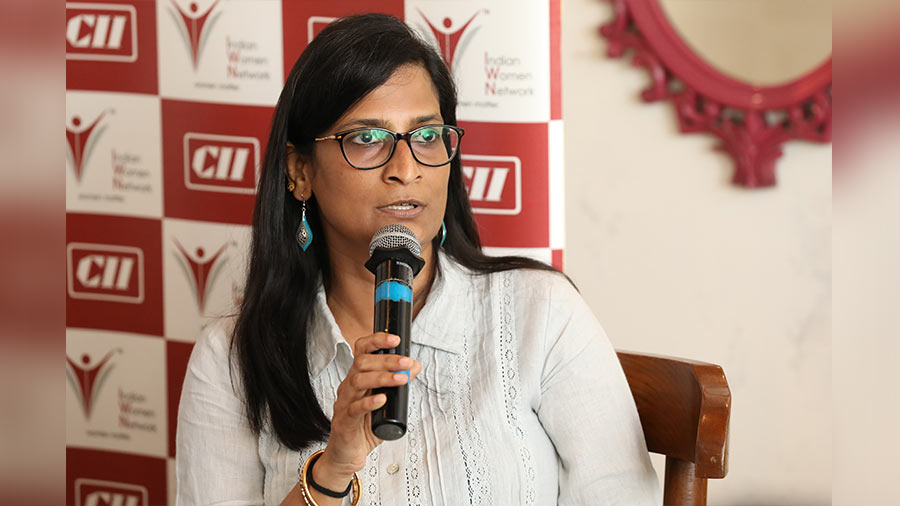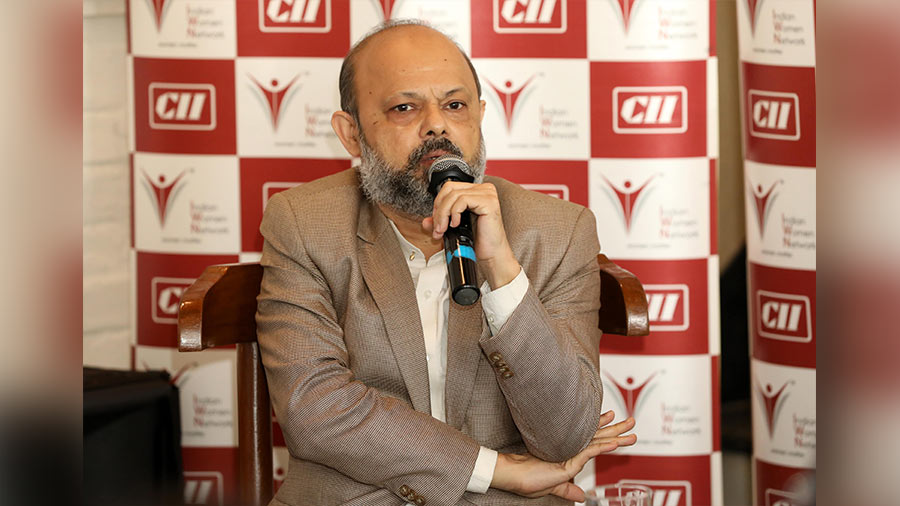Sexual harassment of women in the workplace was the focus of a talk hosted by the Indian Women Network (IWN), a wing of the Confederation of Indian Industries (CII), organised at Corner Courtyard on September 2.
The talk was delivered by Kishore Datta, senior advocate, Calcutta High Court, and Ramya Hariharan, founder of Citadel Law Chambers.
Sriranjani Joshi, chairperson, CII, IWN West Bengal chapter, and director and trustee of George Group of Colleges, hosted the session. Priya Banerjee, co-vice- chair, CII IWN, and associate director of Global OGC, was the moderator.
The talk focused on prevention, prohibition and redressal of PoSH Act, 2013.

(L-R) Priya Banerjee, Kishore Dutta and Ramya Hariharan. Photo by Arijit Sen
Understanding workplace harassment
Distinguishing between the PoSH Act and Indian Penal Code for outraging modesty of a woman, Datta said, “The law punishes a sexual offender who outrages the modesty of women, but the PoSH Act distinguishes this offender as an accused who has committed crime at a workplace. This law was needed as women are now a major part of the workforce.”
Explaining the changing dynamics of a workplace, Ramya Hariharan said, “A workplace is not just the four walls of an office. Any platform, area or field you visit for work will be considered a workplace. If you face sexual harassment in a vehicle provided by your employer, that too falls under the workplace. The Internal Complaints Committee (ICC) cannot deny that.”
Even the exchange of messages through messaging apps among colleagues is taken into consideration. Any lewd or pornographic messages or uncalled for sexual advancements to women over such apps will be considered as sexual harassment in workplace.
“Sexual harassment by any individual whether they are full-time, part-time, contractual etc. can be reported to the ICC. Lewd remarks, gossiping about women’s personal choices, physical or verbal harassment, asking for sexual favours etc are all punishable offence under the Act,” Hariharan said.

Ramya Hariharan, founder of Citadel Law Chambers. Photo by Arijit Sen
Gathering evidence and reporting
Priya Banerjee stated that about 52% of the women in the UK face sexual harassment at workplace but only 1 out of 5 reports. The reasons may range from their anxiety to lack of evidence or lack of knowledge about how to complain. “A woman gets three months to complain about the offence from the time it happens. She needs to gather evidence or witnesses or both and then move to the ICC. Reporting the same to the internal committee should not be delayed,” Hariharan added.
Speaking on the internal committee’s role, Datta said, “The internal committee plays a very important role for both the victim and accused. If the job of the ICC is not done correctly, justice will not be delivered. Therefore, the committees will have to have the correct mindset in an organisation.”

Kishore Dutta, senior advocate, Calcutta High Court. Photo by Arijit Sen.
Changing times
Not only women, men also are protesting sexual harassment at workplace. Many subordinates have complained of sexual advancements from senior female colleagues.
“The PoSH Act does not deal with sexual harassment of men at workplace, but companies can have their own internal policies which can protect the modesty of men and trans persons. Many organisations have already taken such steps," Datta said.
